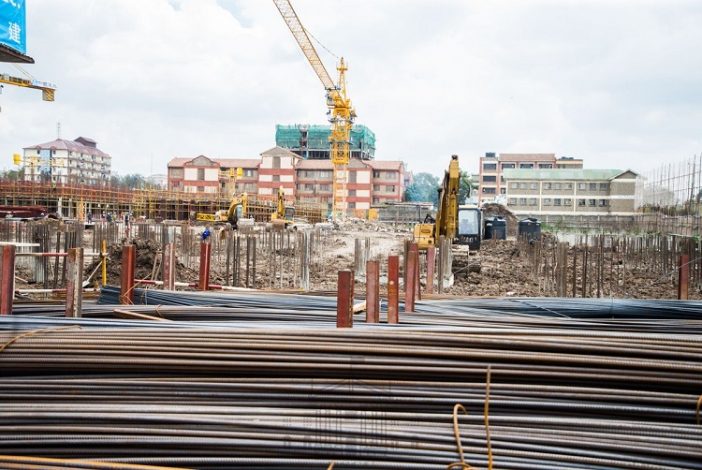Kenya, Rwanda and Ethiopia have been ranked among the top 10 countries where to invest in Africa the year 2020 by Rand Merchant Bank.
RMB’s annual #WhereToInvestInAfrica announces our continent’s top 10, with North Africa dominating the top 3, an even split from the east and west, and only South Africa representing the southern tip. Discover the top 10 below. https://t.co/rhQ5xd7Cej pic.twitter.com/VaiuQHYjj0
— RMB – Rand Merchant Bank (@RMBCIB) September 18, 2019
The bank in its ninth edition, ranks Kenya 4th attributing its positive growth prospects to a diversified economy, expanding consumer market, urbanisation, the East African Community (EAC) integration, structural reforms and investment in infrastructure.
Rwanda is ranked 5th and its growth drivers cited to be ease of doing business environment. Second in Africa.
The co-authors Celeste Fauconnier, Neville Mandimika and Nema Ramkhelawan-Bhana say key drivers for the ten economies are retail, banking and finance, and manufacturing.
“We believe that the six sectors we’ve featured this year are key to inclusive growth across the continent,” said Fauconnier.
1. Egypt:
The enormity of the market paired with a sophisticated business sector relative to other countries makes Egypt the most attractive investment destination in Africa. The improvement in Egypt’s business environment, facilitated through government programmes, combined with the progressive increase in investment from the private sector has enhanced economic growth and assisted in repositioning Egypt on the global investment map.
2. Morocco:
While only Africa’s fifth-largest market, Morocco’s expected growth rate of 4% over the medium term and its greatly-enhanced operating environment has served the country well since the Arab Spring. Its reintegration into the African Union and accession to the Economic Community of West African States (ECOWAS) have enhanced its investment appeal.
3. South Africa:
South Africa has slipped another place in this year’s rankings, stymied by depressed levels of growth and a lack of structural reform. Yet it remains Africa’s hotspot for portfolio investment. With many countries facing severe liquidity constraints, South Africa’s financial markets and level of financial inclusion are still a cut above the rest.
4. Kenya:
The above 5% expected growth rates, helped by favourable weather and political reconciliation after 2017’s disputed elections, has propelled Kenya one spot higher than 2019. The economy benefits from diversity as well as a sustained expansion in consumer demand, urbanisation, East African Community (EAC) integration, structural reforms and investment in infrastructure, including an oil pipeline, railways, ports and power generation.
5. Rwanda:
Rwanda has the second-best business environment in Africa. According to the World Bank’s operating environment scoring, the country has more than doubled the efficiency of its business environment in less than a decade. The government has also invested heavily into its domestic industries, while FDI has increased over the same period, pushing Rwanda to being one of the five fastest-growing economies on the continent.
6. Ghana:
The growth outlook is strong, concentrated around the oil and gas sector. Non-oil growth will pick up again, supported by pro-business reforms and a steady improvement in power supply. Political stability will remain underpinned by Ghana’s strong democratic credentials. Regardless of recent deterioration in its operating environment rankings, Ghana remains one of the easier business environments in Africa.
7. Côte d’Ivoire:
Côte d’Ivoire is one of the more diversified economies in francophone Africa. Its strong growth rates are supported by the government’s pro-business reforms and a relatively stable political context. Large infrastructure projects, particularly in transport and energy (financed by foreign investment, aid inflows and the government) also support the country’s strong position in the rankings.
8. Nigeria:
Nigeria retains its top 10 ranking due to improved macroeconomics, supported by recovering oil prices and production. As the largest economy in Africa in nominal terms, the possibility for investment cannot be overlooked; and with the largest population on the continent, domestic demand continues to rise. Resources and favourable demographics are attracting strong flow of FDI. The liquidity crunch has subsided since 2017 as commodity prices have recovered and changes in FX regulations have been implemented.
9. Ethiopia:
Ethiopia is the fastest-growing economy on the continent. With a population of almost 100 million people, demand for goods and services is rising significantly. The prohibition of foreign ownership in key sectors is still a constraint for investment, but this is slowly changing. The government has announced shake-ups across industries, including plans to open up the once closely-guarded telecommunications and power monopolies.
10. Tunisia:
Tunisia re-enters within the top 10 supported by reasonable market size and favourable operating environment. The government’s encouragement of foreign investment, through its new simplified investment code, has made the country increasingly attractive to multinational manufacturers.





